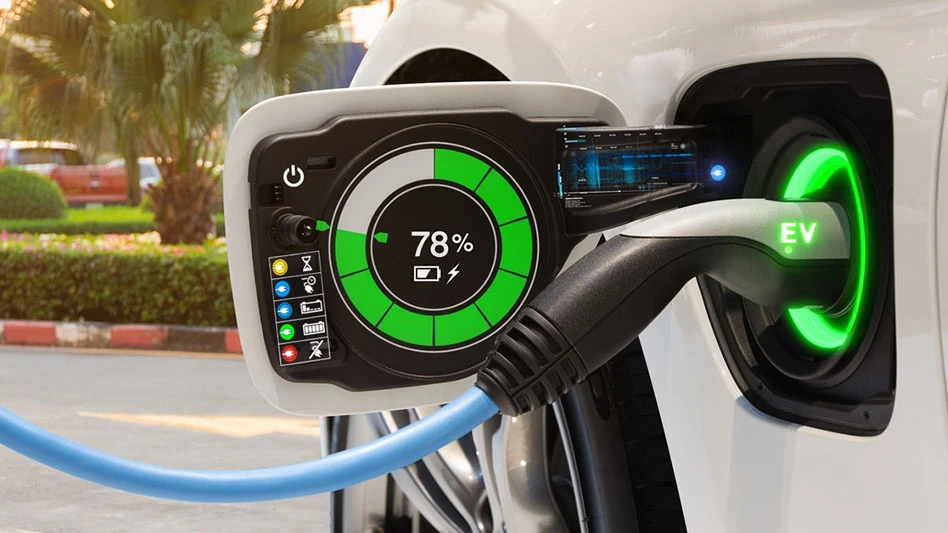
Image courtesy of EMR Ltd.
United Kingdom-based metals recycler EMR Ltd., which also has a network of scrap yards in the United States, says the increased sale of electric vehicles (EVs)—and their sizable battery packs—represents a moment of profound change for metal recyclers and their partners in the U.K. automotive industry.
Unlike in the U.S., EV sales in the U.K. have been accelerating rapidly. The U.K. government has set a 2035 target date for automakers and importers in that nation to phase out most internal combustion engine (ICE) vehicles by 2035.
“It took four decades to perfect the processes for recycling an ICE vehicle, but this time we will only have a few years to get it right,” says Helen Waters, head of electric battery recycling at EMR.
She adds, “Some of the processes are the same, but many aren’t—from efficiently testing the health of a battery to disassembly and logistics, there’s a number of challenges that EMR has identified in creating this new circular economy, and we’re already busy speaking to car makers, leasing companies and dealerships to get it right.”
EMR says the ultimate goal of preparing is straightforward since EMR recycles thousands of end-of-life vehicles (ELVs) every week at its more than 60 U.K. sites. “As EVs become more common on our roads, EMR must ensure it retains its market-leading position as a sustainable, responsible and efficient recycler of ELVs,” the company states.
A truly circular economy for EV batteries will entail the recycling of numerous materials, the firm adds, including lithium, cobalt and nickel.
EMR says recently sold EVs likely will not reach the end of their working lives for at least a decade or more. The window provides an opportunity for the recycling firm to work with the automotive industry now, using product recalls, warranty failures and even the batteries used in e-bikes and e-scooters to provide the volume of material needed to scale up a circular economy for EV batteries, EMR says.
“Our message to the industry is to work with us today so that our businesses can collaborate, whether that is on designing new easy-to-recycle batteries, putting in place the logistics required for this transition or to further develop the technology required to recycle EV batteries,” Waters says.
During the past two years, EMR has led a project aimed at separating and processing end-of-life EV batteries for reuse, remanufacturing (for renewable energy storage) or materials recycling.
A consortium called Recovas has been designed to bring together automakers, including Bentley, Jaguar Land Rover and BMW, along with Connected Energy, Autocraft Solutions, the UK Battery Industrialisation Centre (UKBIC) and academics from the University of Warwick to create “sectorwide cooperation that will be required going forward.” The collaboration is partially funded by the U.K.’s Advanced Propulsion Centre.
“Recovas isn’t the only example of the way EMR is working with the industry,” Waters says. “I have recently been in conversation with original equipment manufacturers (OEMs) and motorsport companies about ways to improve cars from the design phase onwards, to improve the process of recycling or re-using their batteries at end of life.”
EMR says the investments it is making now represent a step on its own journey to net zero by 2040 as outlined in the company’s sustainability strategy. Waters says its work on EV battery recycling also represents a problem-solving opportunity for the entire auto industry.
“Automotive manufacturers have their own 2030 sustainability targets in place, and many have already pledged to deliver a circular economy for their materials as well,” she says. “In addition, EU recycled content targets—added to concerns about resource security—means the industry is already aware that business as usual is no longer an option.
“As more of our infrastructure and transport network becomes reliant on renewable electricity, the EV battery recycling technology we develop now will help create circular supply chains for the material used to build the trains, boats and even wind turbines of the future.”
Latest from Recycling Today
- Reconomy brands receive platinum ratings from EcoVadis
- Sortera Technologies ‘owning and operating’ aluminum sorting solutions
- IDTechEx sees electric-powered construction equipment growth
- Global steel output recedes in November
- Fitch Ratings sees reasons for steel optimism in 2025
- P+PB adds new board members
- BlueScope, BHP & Rio Tinto select site for electric smelting furnace pilot plant
- Magnomer joins Canada Plastics Pact





